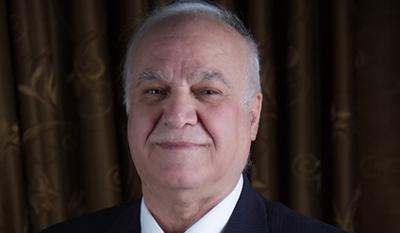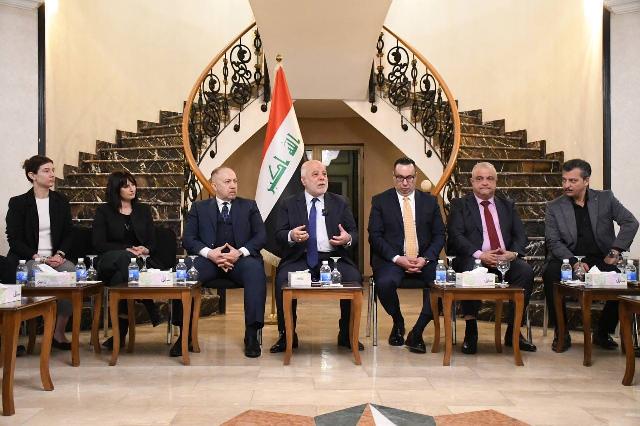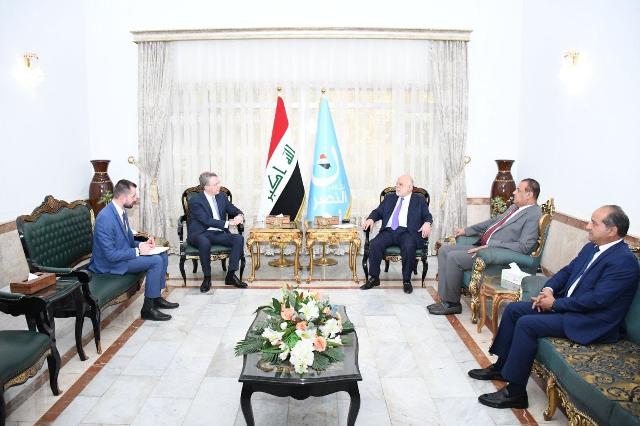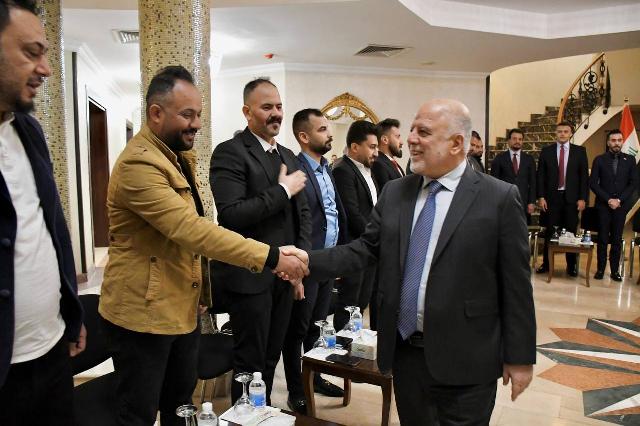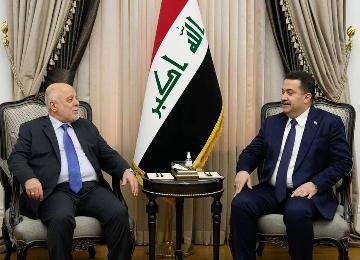Today, it is my right to express my point of view on an essential matter that did not come out in its content and fundamentals from being confronted with two major obstacles that have faced Dr. Haider Al-Abadi's reform program since its announcement on August 9, 2015.
The first obstacle was represented by the security crisis that ravaged the country, bodied by the terrorism of ISIS, and the second was the severe financial and economic crisis that restricted the ways of life and development in Iraq. And if we add the political crisis and the continuing divisions in political democracy, it will be a third obstacle, and it is one of the most ambiguous and complex obstacles. Nothing remained for the man who led the war battle with bravery and high selflessness but one path to apply his reform program, which is the radical change to face the curbing restrictions of reform and confront the difficult decisions in the radical transformation of the constitutional political system towards the radical axes of the left, which is what I personally called in the August 7, 2015 meeting "The Revolutionary legitimacy".
However, the question that has raised over everything, is summarized by the following path: In a time of war management, difficulties management, and economic scarcity, is it correct to have the constitutional coup against parliamentary democracy by adopting the very radical third world approaches that prevailed in the last century as exceptional models in the management of power and governance in Asia, Africa, and Latin America as most of them ended to failure? Moving with the political system towards the abolition of the constitutional principles that the democratic voter funds brought, remained among the coffins or taboos that the prime minister clung to as principles for democratic national action and its reform renaissance in a very complex path fraught with constraints and challenges. Thus, the political results of such travails in the reform process showed a fundamental form centering on the importance of the country's unity after its liberation from terrorism and preserving the democratic horizon in the establishment of the future of the Iraqi nation and the aspiration for reconstruction and construction in the stage of the political economy of peace in which we live today.
These principles have combined in difficult and harsh circumstances and before the liberation of Mosul, the tools of their work with high effectiveness and denial, obligated everyone in the administration of the state to exercise accuracy and bypass the unsecured calculations that threatened ISIS, while it controlled at that time about 40% of the geography of Iraq.
At that time, I realized, in a dynamic and highly complex climate, that Dr. Haider al-Abadi is a widely rational political leader in arranging his priorities in managing the civil and military affairs of the state, as he challenges two major constraints: Reform and the war over terror.
He is not a man of political coups or aspiring to power, as he is from the type of political leadership that was born from the womb of democracy and lived its hopes and aspirations and preserved its identity, despite the fragility of that experience and its problems in a country that has not been accustomed to democracy for decades and has a long track record of individual rule. As a rare national leader, Dr. Haider al-Abadi adhered to democracy and guided its principles with a wide circle of responsibility and courage, bearing its hardships and thorny practical fields, whether military or civil, in order to achieve the idea of the peaceful transfer of power with the same democratic tools and in accordance with the constitution. Thus, the Iraqi political model has proven its ability to take its role by transferring political dynamism and preserving its permanence with high success and calm and transforming it from the tribulations of terrorism to perpetuating victory in war, overcoming economic difficulties, bringing the country to the scope of its unity and preserving its sovereignty and the dignity of its people as an approach (change) without abandoning the (democratic reform) principles.
He is a man lived the post-liberation period to consolidate the philosophy of the peaceful transfer of power, and he really practiced it with the courage of the great leaders in word and deed. With this, the national history of Iraq recorded that Dr. Haider al-Abadi remained a national political leader and statesman of a firm and calm model, and with the courage of men he carried the branch of peace and democracy in one basket, and a rare political insight that the modern third world countries did not undertake in their adoption of parliamentary democracy and the peaceful transfer of power and maintaining circulation.
Abadi lived as a fighter, defending his genual principles during the past difficult years of Iraq and setting the country aside from paths drawn by the maps of the bloody war to put Iraq on the paths of peace and the perpetuation of democracy while at the same time holding on to the unity of Iraq for the sake of the welfare and prosperity of its people.
In conclusion, and as a witness to history, Dr. Haider al-Abadi (when we describe the Iraqi political leaders) embodied the character of the African fighter Nelson Mandela, but in another continent: Democratic Asia.



